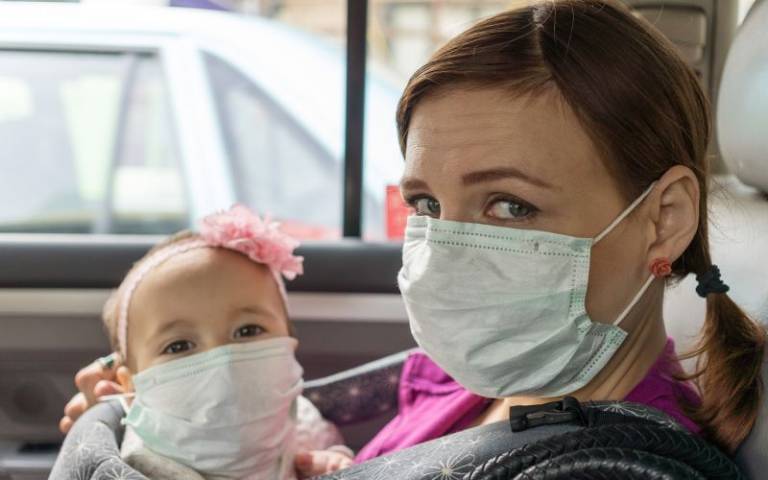Researchers develop program to map evidence on COVID-19
20 May 2020
Researchers at UCL Institute of Education (IOE) have developed a computer program that maps worldwide evidence on COVID-19.

The map was developed as the pandemic began and enables users to search for evidence across several topics, including transmission and risk, health impacts, social and economic impacts, and vaccine developments, among others.
The work, led by Professor James Thomas, was produced through a collaboration of teams at the IOE’s Evidence for Policy and Practice Information and Co-ordinating Centre (EPPI-Centre), the Centre for Reviews and Dissemination at the University of York, and the London School of Hygiene and Tropical Medicine.
The EPPI-Centre’s systematic review software enables the team to swiftly screen references to check they are relevant to COVID-19 and contain research data; code the relevant research to describe broadly what it covers; and to instantly generate the resulting interactive map.
In the early stages of the pandemic, the team has found relatively small numbers of extensive or robust research projects. However, they have found a significant amount of useful information from practitioners and clinicians on the ground, such as case reports on diagnosis, treatment or outcomes of individual patients with COVID-19, and case studies from organisations on how hospitals have responded to the pandemic, among others.
The map has shown there is a relatively large number of studies on disease transmission and health impacts, however, there are relatively few on mental health impacts and social and economic impacts.
Dr Katy Sutcliffe, one of the project researchers, said: “The living map of evidence on COVID-19 came about due to our long-standing programme of work for the Department of Health and Social Care, England. As the pandemic began to unfold we identified a need to collate the emerging research evidence. Our skills and technology meant we would be able to respond quickly and comprehensively.
“The coding framework allows us to describe research on COVID-19 according to broad categories that are really useful for quick identification of evidence for policy decision-making.
“Looking ahead, we anticipate that we will see increasing numbers of formal evaluations of treatments and vaccines in the coming weeks and months.”
Links
- COVID-19: a living systematic map of the evidence
- COVID-19 research at UCL Institute of Education
- EPPI-Centre
- Department of Social Science
- View Professor James Thomas's research profile
- View Dr Katy Sutcliffe's research profile
Image
David Veksler via Unsplash
 Close
Close

